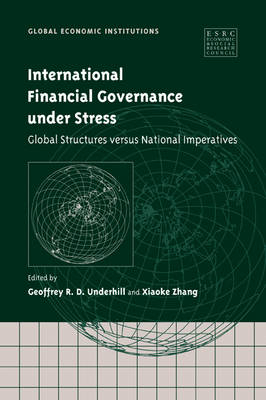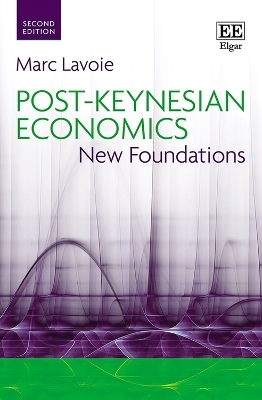
International Financial Governance under Stress
Cambridge University Press (Verlag)
978-0-521-03637-5 (ISBN)
Persistent episodes of global financial crises have placed the existing system of international monetary and financial governance under stress. The resulting economic turmoil provides a focal point for rethinking the norms and institutions of global financial architecture and the policy options of public and private authorities at national, regional and transnational levels. This volume moves beyond analysis of the causes and consequences of recent financial crises and concentrates on issues of policy. Written by distinguished scholars, it focuses on the tension between global market structures and national policy imperatives. Accessible to both specialists and general readers, the analysis is coherent across a broad range of theoretical and empirical cases. Offering a series of reasoned policy responses to financial integration and crises, the volume grapples directly with the institutional and often-neglected normative dimensions of international financial architecture. The volume thus constitutes required reading for scholars and policy-makers.
Geoffrey R. D. Underhill is Professor of International Governance in the Department of Political Science of the University of Amsterdam. Xiaoke Zhang is Research Fellow in the Department of Political Science of the University of Amsterdam.
List of figures; List of tables; List of contributors; Acknowledgements; Introduction: global market integration, financial crises and policy imperatives Geoffrey R. D. Underhill and Xiaoke Zhang; Part I. Financial Globalisation and Policy Responses: Concepts and Arguments: 1. Reform of the international financial architecture: what has been written? Jonathan Story; 2. Costs and benefits of financial globalisation: concepts, evidence and implications John Williamson; 3. Capital controls: the neglected option Benjamin J. Cohen; 4. Global structures and political imperatives: in search of normative underpinnings for international financial order Geoffrey R. D. Underhill and Xiaoke Zhang; Part II. Globalisation, Financial Crises and National Experiences: 5. Crisis consequences: lessons from Thailand Pasuk Phongpaichit and Chris Baker; 6. The politics of financial reform: recapitalising Indonesia's banks Richard Robison; 7. South Korea and the Asian crisis: the impact of the democratic deficit and OECD accession Stephen L. Harris; 8. Currency crises in Russia and other transition economies Vladimir Popov; 9. Capital account convertibility and the national interest: has India got it right? Vijay Joshi; 10. Learning to live without the Plan: financial reform in China Shaun Breslin; 11. The Asian financial crisis and Japanese policy reactions Masayuki Tadokoro; Part III. Private Interests, Private-Public Interactions and Financial Policy: 12. Private capture, policy failures and financial crisis: evidence and lessons from South Korea and Thailand Xiaoke Zhang and Geoffrey R. D. Underhill; 13. Governance, markets and power: the political economy of accounting reform in Indonesia Andrew Rosser; 14. The private sector, international standards and the architecture of global finance George Vojta and Marc Uzan; Part IV. Building the New Financial Architecture: Norms, Institutions and Governance: 15. The legitimacy of international organisations and the future of global governance Jean-Marc Coicaud and Luiz A. Pereira da Silva; 16. The G-7 and architecture debates: norms, authority and global financial governance Andrew Baker; 17. Bail-outs, bail-ins and bankruptcy: evolution of the new architecture Manmohan S. Kumar and Marcus Miller; Conclusion: towards the good governance of the international financial system Geoffrey R. D. Underhill and Xiaoke Zhang; Index.
| Erscheint lt. Verlag | 7.5.2007 |
|---|---|
| Reihe/Serie | Global Economic Institutions |
| Zusatzinfo | 14 Tables, unspecified; 5 Line drawings, unspecified |
| Verlagsort | Cambridge |
| Sprache | englisch |
| Maße | 152 x 229 mm |
| Gewicht | 618 g |
| Themenwelt | Wirtschaft ► Volkswirtschaftslehre ► Finanzwissenschaft |
| Wirtschaft ► Volkswirtschaftslehre ► Makroökonomie | |
| ISBN-10 | 0-521-03637-2 / 0521036372 |
| ISBN-13 | 978-0-521-03637-5 / 9780521036375 |
| Zustand | Neuware |
| Haben Sie eine Frage zum Produkt? |
aus dem Bereich


